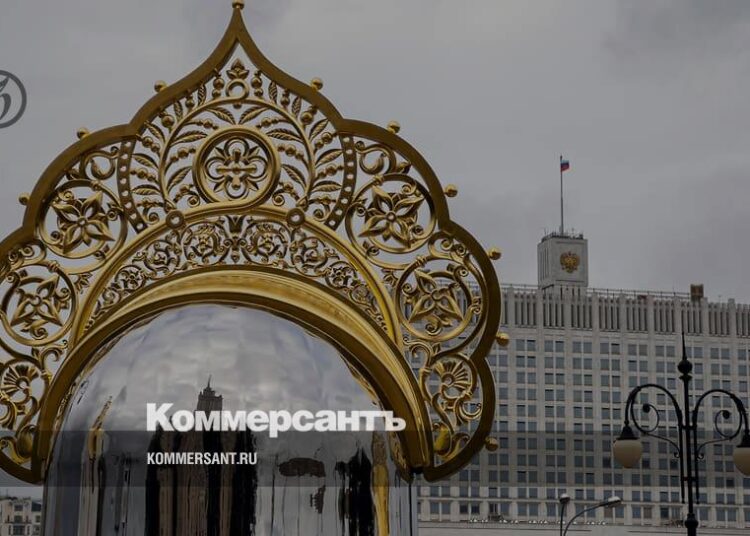The second “counter-sanctions” presidential decree, which somewhat clarifies both the currency control regime and the regime of restrictions on the movement of capital, was published on March 1 in the evening. The document did not introduce fundamental clarity into what was happening – it requires that all transactions with foreign individuals and legal entities from “unfriendly” jurisdictions be coordinated with the government commission on foreign investment, and in some cases (with securities) – with the Bank of Russia. Formally, the decree “mirrors” US sanctions on almost all developed economies. Its practical significance and efficiency depend only on law enforcement: it can be used both as an “economic iron curtain” and as a hub for constant deals with what the Russian authorities call the “west”.
The second presidential decree in the development of “counter-sanctions” on February 28 was published at 22:30 Moscow time on March 1. Topic – “On additional temporary measures of an economic nature to ensure the financial stability of Russia.” However, only the prohibition on the export of cash currency worth more than $10,000 from the Russian Federation (previously it could be exported by declaring the origin) that was expected in the morning and logical in the light of the return of currency control, is directly related to the financial stability of the Russian Federation in the decree.
The main content of the decree was announced in the morning by Prime Minister Mikhail Mishustin – this is the “manual” regulation of transactions with assets controlled by non-residents of the Russian Federation, necessary in the light of sanctions and the stock market shutdown.
However, in practice, the decree is also an attempt to create a new category of legal entities and individuals who have anything to do with foreign states that impose sanctions against the Russian Federation.
The exact description of them is as follows: they are “associated with foreign states that commit unfriendly actions against Russian legal entities and individuals (including if such foreign persons have the citizenship of these states, their place of registration, the place of their predominant business activity or the place of predominantly extracting profit from their activities are these states)”. In addition, “persons who are under the control of these foreign persons, regardless of their place of registration or the place of their primary business activities” fall into the same category. All this together in the decree is referred to as “persons of foreign states committing unfriendly actions.”
For such persons, the decree limits the receipt of loans in rubles, transactions with securities of the Russian Federation and real estate. For them, it is planned to establish a “special procedure” for such transactions, for securities it will be developed by the Ministry of Finance and the Central Bank, the government will develop within 5 days a general procedure for permits for such transactions, which will be issued by the government commission for foreign investment control. The decree does not provide instructions on who and on what grounds will give definitions of “states committing unfriendly actions”, and even more so of persons controlled by them, according to the authorities of the Russian Federation.
The meaning of the decree is to transfer under the control of the government all transactions with companies and individuals in the United States, the EU, most OECD countries, that is, in the spirit of the decree, with all countries of the world that have announced certain types of sanctions in connection with the military operation of the Russian Federation in Ukraine.
From a political point of view, it looks like a “counter-sanctions mirror” of the US sanctions regime, with the exception that the territory of the Russian Federation is declared a free world, fenced around the perimeter with sanctions restrictions: “friendly” large and more or less developed states in the spirit of the decree, at least now not so many (although they include China, India, Brazil, Argentina, South Africa).
Sanctions against most of the world economy would technically have to be implemented through an infrequently meeting government commission. Either this institution for communication with the whole world in all transactions (we note that for the “persons of unfriendly states” themselves the very idea of belonging to any state will not be obvious and understandable in all cases) will be adequately modified – or the decree will restore the economic component ” iron curtain.” In this case, it will be bilateral: state bans of the Russian Federation on the one hand, sanctions on the other. The “permeability” of the curtain on the part of the Russian Federation depends on the decisions of the White House – it can be, in fact, any.
Finally, the decree authorizes “transfers of funds in foreign currency to correspondent accounts with non-resident banks” subject to the restrictions provided for in the rest of the provisions. From this, apparently, it follows that transactions on February 28, 2022 and with dates around them with the movement of foreign exchange funds on correspondent accounts abroad may have a controversial status in the understanding of Russian jurisdiction.









